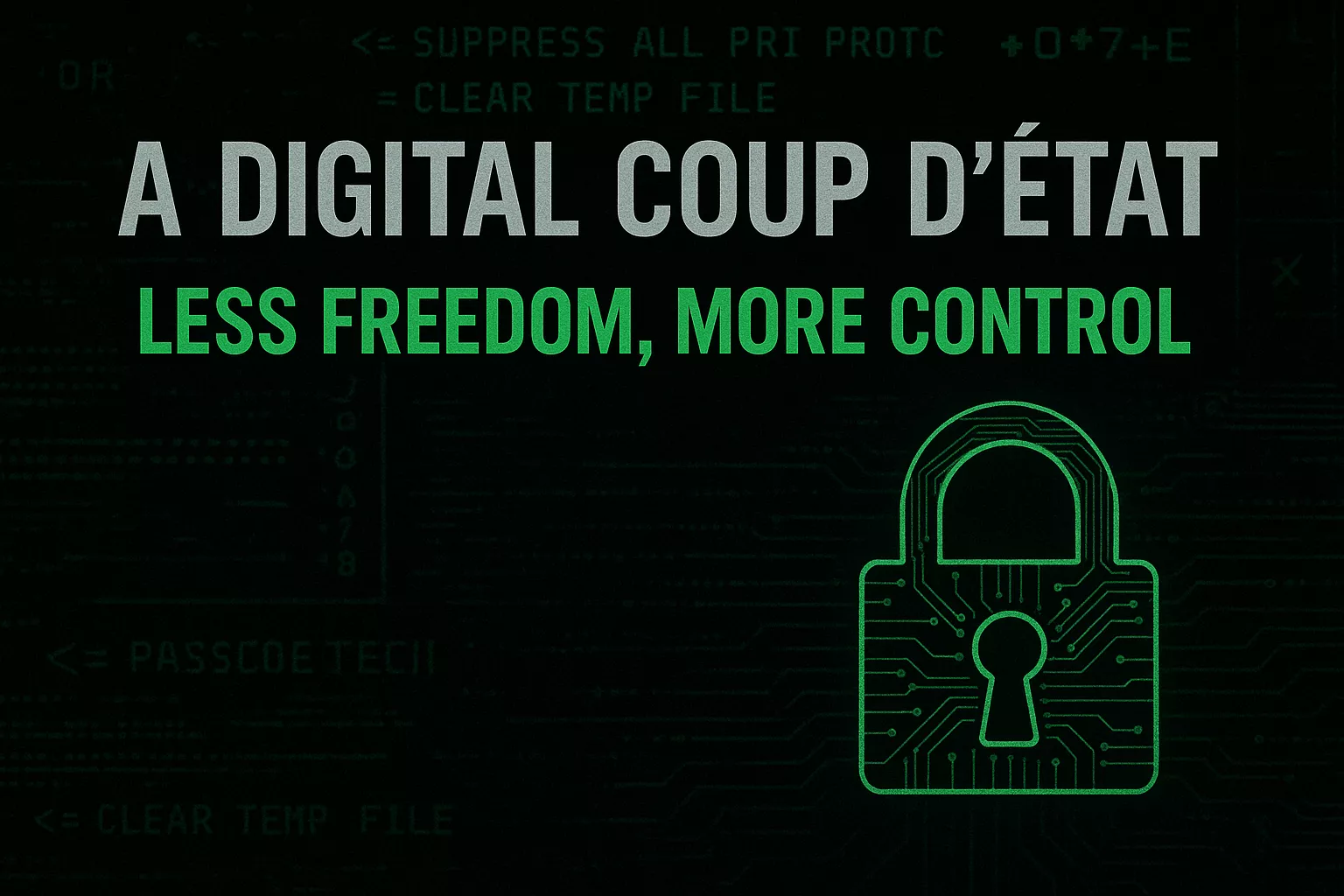There was a time when the internet was open, adaptable, alive.
No permissions were needed to experiment, no one could stop you from installing software or sending a message, and the hacker ethic — sharing knowledge, transparent code, the freedom to modify — was the compass guiding the network’s growth. Open source was a political and cultural statement, not a marketing label.
Today, that era is over.
And it hasn’t been killed by a single blow, but by a series of small legislative cuts that, together, are bleeding European digital freedom dry.
August 2025 is the perfect proof: four seemingly unrelated news stories together paint a single picture.
Each hits a different front — hardware, communications, network infrastructure, data sovereignty — yet they all tell the same story: less control for the user, more centralized power in the hands of governments and big corporations.
1. Locking down hardware in the name of “protection”
The new RED Directive requires manufacturers to prevent any unauthorized modifications to radio firmware. On paper, it’s about safeguarding network security; in practice, it’s already the perfect excuse to block bootloader unlocking and custom ROMs.
The result: your smartphone is no longer yours. It’s a leased terminal, controlled by the manufacturer, and potentially ready to host built-in surveillance features.
2. Monitoring your chats before you even hit “Send”
Chat Control is back — more aggressive than ever: mandatory scanning of all communications, even encrypted ones, directly on your device.
It’s called “client-side scanning,” but the real name is “permanent backdoor.” The official narrative is “protecting children”; the real risk is opening the door to mass surveillance. Once that infrastructure exists, changing its purpose is only a parliamentary vote away.
3. Controlling the roads of the internet
In Italy, Piracy Shield has expanded from sports to films, music, and TV series, with takedowns executed in under 30 minutes. Now, VPNs, public DNS services, and search engines are also in the crosshairs.
In other words: the very tools that underpin online freedom and privacy are being targeted. The risk? A national firewall, disguised as an anti-piracy measure.
4. Pretending to protect data (while knowing it can’t be done)
Microsoft admitted before the French Senate that it cannot guarantee European data will be protected from the U.S. Cloud Act.
The EU authorities’ response? To declare that “the violations have been resolved” thanks to contractual clauses that U.S. law can override at any moment.
This isn’t protection — it’s security theater.
The common thread: centralized control
Four episodes, same pattern:
- Lock down hardware so you can’t modify it.
- Insert backdoors into your communication channels.
- Restrict the tools that let you move freely online.
- Simulate security while surrendering data sovereignty.
The goal is clear: to turn the citizen into a passive user, stripped of the means to defend themselves or to see what’s happening behind the scenes.
Real security isn’t this
A hacker knows this well: security doesn’t come from blind surveillance, but from four essential pillars. Open, auditable code, because transparency is the first antidote to abuse and backdoors. Documented, lock-in-free hardware, because without open specifications there’s no real freedom to modify. Widespread digital literacy, because security can’t be outsourced — it must be learned. And finally, ownership and self-custody: truly possessing your devices and keeping your data without intermediaries. Everything else is just a shortcut to control, not to protection.
Why this is the decisive battle
If today you accept losing bootloader unlocking “because you don’t need it,” tomorrow you’ll accept inaccessible filesystems “because you have nothing to hide.” If today you tolerate preemptive scanning “to protect children,” tomorrow it will be “to prevent fake news” or “hate speech” in private chats.
Digital freedom is not lost all at once — it fades away one right at a time. And by the time we realize it, it will be too late to reopen it.
–Francesco `ascii` Ongaro
